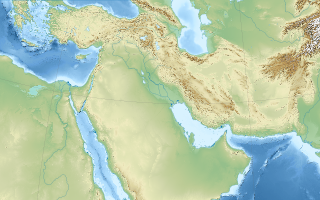
Ausgerichtet vom Istituto Affari Internazionali findet am 18. Juli 2016 eine Konferenz zum Thema „Re-Ordering the Middle East? Peoples, Borders and States in Flux“ statt.
Das Programm:
8:30-9:00 REGISTRATION OF PARTICIPANTS
9:00-9:45 INTRODUCTORY REMARKS
Musa Shteiwi, Center for Strategic Studies, University of Jordan, Amman
Ettore Greco, Istituto Affari Internazionali (IAI), Rome
Nicolò Russo Perez, Compagnia di San Paolo, Turin
9:45-10:00 KEYNOTE SPEECH
Shibley Telhami, University of Maryland, USA
10:00-11:30 SESSION I – THE COLLAPSE OF AUTHORITY: ORDER IN THE MIDDLE EAST?
It is often claimed that the Middle East is witnessing the ‘end of the Sykes-Picot order’, or that the region is experiencing the re-arrangement of populations ‘to better fit’ the nation states which were established after WWI. Session I will put these and related claims to test by presenting different historical and analytical perspectives on the drivers of current Middle Eastern instability. The panel will also engage in a forwardlooking discussion of viable organizing principles of a new regional order.
Chair: Mustafa Hamarneh, Former Director of the Center for Strategic Studies, Amman
Panelists: Rami Khouri, American University of Beirut; The Daily Star
Şaban Kardaş, Center for Middle Eastern Strategic Studies (ORSAM), Ankara
Lorenzo Kamel, Istituto Affari Internazionali (IAI); Harvard University
Gamal Soltan, American University of Cairo
11:30-11:45 Coffee Break
11:45-13:15 SESSION II – STATE VACUUMS AND NON-STATE ACTORS
Governance failures combined with 21st century social, economic, environmental and demographic conditions
paved the way for the rise of non-State and quasi-State actors in the Middle East. Are States irremediably undermined or will the current transition lead to the emergence of new State entities? How to reconcile the crumbling of States and the redrawing of borders with the exacerbation of traditional inter-state competition, including through proxy wars? The panel will analyse developments in the region focusing on the interplay between disintegration and polarization.
Chair: Charlotte Brandsma, The German Marshall Fund of the United States (GMF), Brussels
Panelists: Randa Slim, Middle East Institute, Washington, DC
Florence Gaub, European Union Institute for Security Studies (EUISS), Paris
Raffaele Marchetti, LUISS Guido Carli University, Rome
Abdulhakeem Khasro Jawzal, Salahaddin University-Erbil
13:15-14:30 Lunch
14:30-16:00 SESSION III: THE ROLE OF ECONOMY AND GLOBAL ISSUES
Do sectarian lines align with economic realities on the ground or partly transcend them? In other words, what is the underlying economic matrix of Middle Eastern conflicts, and in what ways has it evolved since 2010-2011? Is this a doomed geography of economic disruption, structural inequality, and chronic
underdevelopment, or can positive economic developments be identified even amidst confrontation and conflict? Will US decreasing dependence on Middle Eastern oil and the West’s weakening position in the
region affect the broader economic outlook or not?
Chair: Hisham Gharaibeh, College of Economy, German-Jordanian University and former Minister of Environment of Jordan
Panelists: Abdullah al-Dardari, UN Economic and Social Commission for Western Asia, Beirut
Nadim Shehadi, Fares Center for Eastern Mediterranean Studies, Tufts University, Boston
Jawad Al-Anani, Deputy Prime Minister for Economic Affairs and Minister of Industry of Jordan
Adeel Malik, Oxford University
16:00-16:30 CONCLUDING REMARKS
Abdullah Alkhatib, Jordanian House of Senate and Former Minister of Foreign Affairs
Laura Quadarella, Italy’s Ministry of Foreign Affairs and International Cooperation
Lorenzo Kamel, Istituto Affari Internazionali (IAI); Harvard University
16:30 END OF THE CONFERENCE